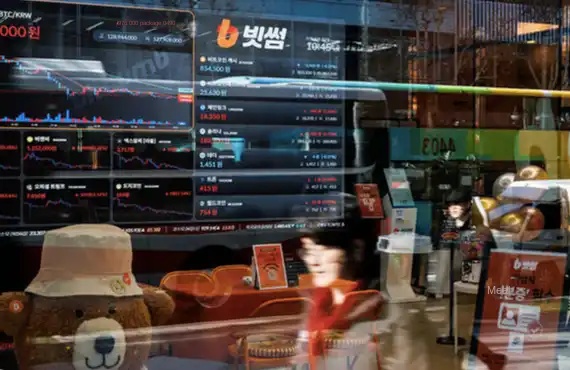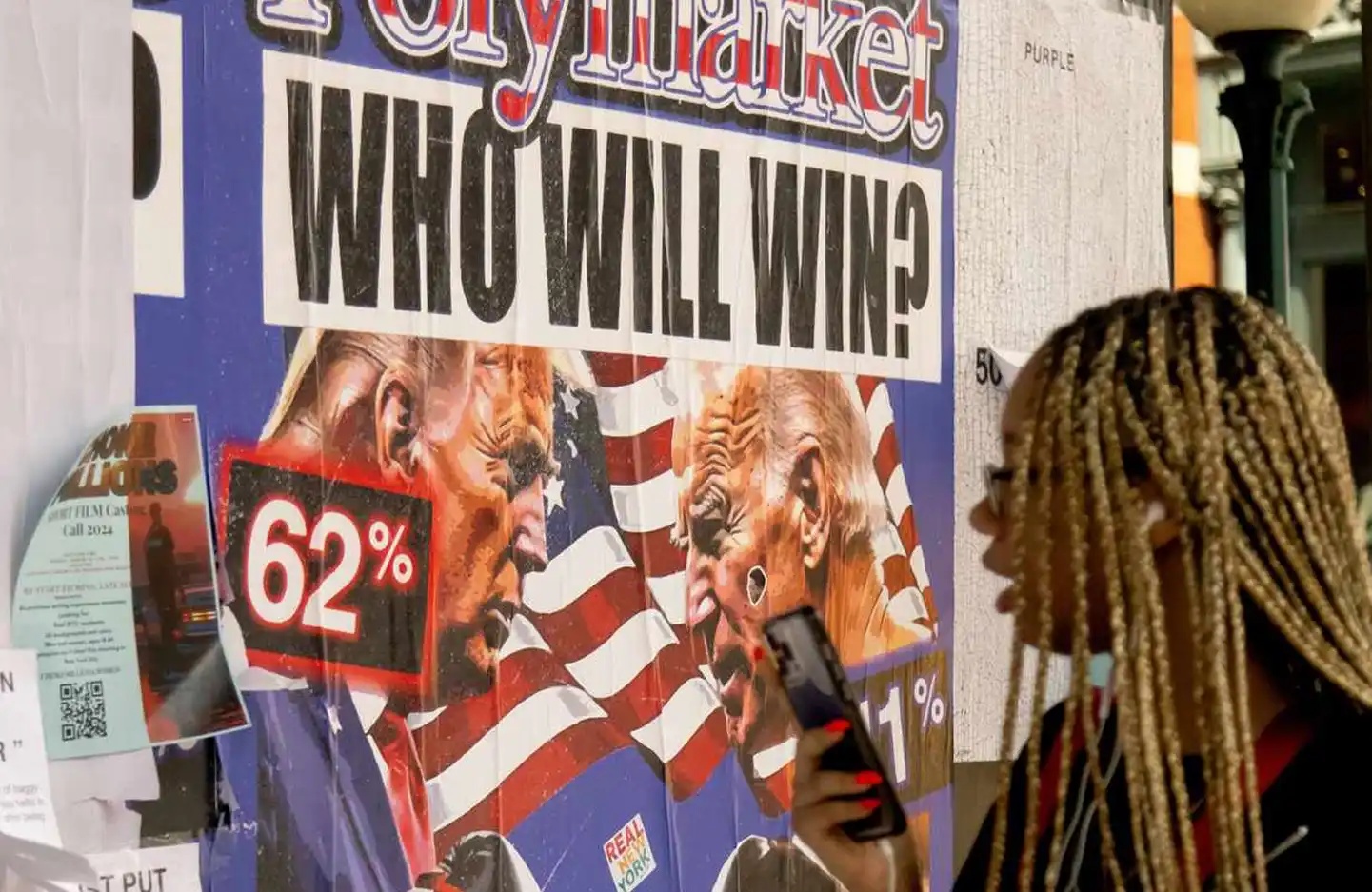Which Global Companies Increased Their Bitcoin Holdings in May?
Original Article Title: "Speculation or Vision? A Comprehensive Look at Global Corporate Bitcoin Purchases in May"
Original Article Author: Oliver, Mars Finance
In May 2025, as the narrative of Bitcoin as "digital gold" continued to heat up, numerous companies worldwide announced purchases or plans to purchase Bitcoin, aiming to hedge against inflation, enhance valuation, or reshape their financial strategies through this decentralized asset. From a health tech company in Sweden to a textile giant in China, and to a fintech firm in Indonesia, these new players entered the Bitcoin market through diverse funding methods, showcasing the penetration of crypto assets into traditional industries.
Overview of Corporate Bitcoin Investments
The following table summarizes the Bitcoin investment plans of five new companies in May 2025:

1. H100 Group AB: The Vanguard of Bitcoin Reserves in Swedish Health Tech
The Swedish health tech company H100 Group AB announced on May 25th its Bitcoin reserve strategy through a $2.2 million financing round, becoming Sweden's first publicly listed company to include Bitcoin in its balance sheet. According to Cointelegraph, this financing was led by Blockstream CEO Adam Back, who personally contributed around $1.4 million, with the remaining $800,000 coming from various institutional investors. The funds were injected through 0% interest convertible bonds, aiming to purchase approximately 20.18 BTC. Adding to the 4.39 BTC bought on May 22nd, the total holdings are expected to reach 24.57 BTC.
H100's financing structure is innovative: the convertible bonds will mature on June 15, 2028, and can be converted into company shares at 1.3 Swedish Krona per share (about $0.11) with a provision that if the share price rises by over 33% for 60 consecutive days, the conversion can be enforced by the company. This design lowers the cost of funding while providing investors with an opportunity to share in the company's growth. H100 stated that Bitcoin embodies values of "individual sovereignty," aligning with its health tech mission. The market responded enthusiastically, with the company's stock price rising over 40% since the announcement of the Bitcoin purchase plan on May 22nd.
Although H100's Bitcoin holdings are relatively small, representing only a small part of its balance sheet, Adam Back's involvement has added credibility to it. As a pioneer in the Bitcoin space, Back has been advancing Layer-2 technology and mining development through Blockstream, and his endorsement may inspire more European companies to follow suit. H100's strategy appears more like cautious experimentation rather than a full-fledged transformation, reflecting the conservative approach of small and medium-sized enterprises entering the Bitcoin market.
2. DDC Enterprise: China's Apparel Logistics Bitcoin Gamble
China's publicly listed company DDC Enterprise announced on May 16 its plan to purchase 5,000 bitcoins, worth about $500 million, becoming a frontrunner in Chinese corporate Bitcoin investment. According to Bitcoin Magazine and X Platform Dynamics, DDC is engaged in the apparel and logistics business, raising funds through additional share issuance to establish a strategic Bitcoin reserve. This plan quickly sparked discussions, with X Platform users pointing out that DDC may emulate MicroStrategy by using Bitcoin investment to boost its stock price while hedging against global trade uncertainty.
DDC's motivation is closely related to its industry background. The apparel and logistics industry is facing rising supply chain costs and tariff pressures, making Bitcoin's attractiveness as an inflation hedge increasingly prominent. In addition, regions such as Hong Kong, China have gradually opened up regulatory environments for crypto assets, providing DDC with room to maneuver. Following the announcement of the coin purchase plan, DDC's stock price rose by approximately 25% in the short term, demonstrating initial market approval of its strategy. However, the purchase of 5,000 bitcoins requires a substantial amount of capital, and share dilution may impact shareholder equity. Regulatory uncertainty around cryptocurrency in mainland China necessitates cautious operations within a compliance framework for DDC. Nonetheless, its high-profile layout may inspire more Asian enterprises to join the Bitcoin craze, serving as a key indicator in the Chinese market.
3. Addentax: China's Textile Company's Plan for 8,000 Bitcoins
Also on May 16, Chinese textile and logistics company Addentax (Nasdaq: ATXG) announced its plan to raise funds through new stock issuance to purchase up to 8,000 bitcoins and other cryptocurrencies, with a total value of approximately $800 million. According to Cointelegraph and X Platform reports, Addentax's decision marks its transition from the traditional manufacturing industry to the cryptocurrency field, seeking to enhance its valuation and market attention through Bitcoin investment.
Addentax's strategy is more aggressive than DDC's, and if successful, the plan for 8,000 bitcoins will make it one of the largest Bitcoin holders among Chinese companies. However, this plan has sparked controversy. X Platform users question whether Addentax's cash flow can support such a large-scale investment and are concerned that it may amplify risks through high leverage operations. The textile industry has a lower profit margin and is heavily impacted by global trade wars, with Bitcoin potentially seen as a breakthrough to overcome business bottlenecks.
Addentax's coin purchase plan will face a dual test of market fluctuations and regulations. China's cryptocurrency regulatory policies may limit its operational flexibility, and share issuance may lead to equity dilution. Nevertheless, its bold strategy demonstrates Chinese enterprises' ambition in the global Bitcoin frenzy, potentially prompting more traditional industries to follow suit.
4. DigiAsia: Indonesia's Fintech Profit Reinvestment Model
Indonesian fintech company DigiAsia (Nasdaq: FAAS) announced on May 20th its plan to raise $100 million to purchase Bitcoin and committed to reinvesting up to 50% of future net profits. According to X Platform News, this plan caused DigiAsia's stock price to surge by nearly 90% in the short term, demonstrating the market's enthusiasm for its aggressive strategy.
DigiAsia's strategy is unique. Instead of directly financing the purchase of coins, it links Bitcoin investment to profitability, showing confidence in long-term holding. The company stated that Bitcoin can hedge against the depreciation risk of the Indonesian Rupiah and attract global investor attention. With Indonesia being the largest economy in Southeast Asia and rapid growth in cryptocurrency adoption, DigiAsia's move may encourage more local businesses to follow suit.
However, DigiAsia's model of earning returns through borrowing and pledging Bitcoin may amplify financial risks. The drastic price fluctuations of Bitcoin could lead to a liquidity crisis, and Indonesia's cryptocurrency regulations are still relatively conservative, requiring more compliance costs. Nevertheless, its profit reinvestment model provides a new approach for cash-rich companies and could serve as a template for emerging market enterprises.
5. Basel: Singapore Medical Group's $1 Billion Bitcoin Acquisition
Singaporean orthopedic medical group Basel announced on May 23rd that it reached an agreement with the "Bitcoin Holder Alliance" to purchase 10,000 Bitcoins through the issuance of common stock, worth approximately $1 billion. As revealed by @chairbtc, Basel's strategy is highly similar to MicroStrategy, using investor funds to buy Bitcoin and relying on price appreciation to reward shareholders.
Basel's participation adds a new case of Bitcoin adoption in the healthcare industry. As a high-tech company focusing on orthopedic healthcare, Basel faces high R&D costs and market competition pressure, and Bitcoin investment may be seen as a means to diversify risks and enhance returns. X Platform users have dubbed it the "Asian version of MicroStrategy," believing that it may attract global capital through Bitcoin and address industry growth bottlenecks.
The plan to acquire 10,000 Bitcoins places high demands on Basel's financial structure. Issuing additional shares may cause equity dilution, and Bitcoin's high volatility could affect balance sheet stability. Singapore has relatively strict cryptocurrency regulations, and Basel must ensure compliance. Nonetheless, its bold move demonstrates the ambition of Asian enterprises in the Bitcoin frenzy and may trigger a chain reaction in the healthcare industry.
Driving Forces of the Craze
The May 2025 Bitcoin investment craze was driven by multiple factors, reflecting the complex dynamics of the global business and market:
· Macroeconomic Uncertainty: Global inflation, geopolitical issues, and tariff policy uncertainty have led companies to seek inflation-resistant assets. Bitcoin's fixed supply of 21 million coins and decentralized nature make it an ideal choice as a hedge against currency devaluation. For example, DigiAsia explicitly mentioned that Bitcoin can withstand the depreciation risk of the Indonesian Rupiah.
· MicroStrategy's Benchmark Effect: MicroStrategy's stock price surged by 220% through holding over 250,000 bitcoins, setting a template for other companies. Basel and DDC's coin purchase strategies were evidently inspired by it, attempting to replicate this successful path.
· Improved Regulatory Environment: With the Trump administration in the U.S., crypto-friendly policies were expected to strengthen, such as the proposal to establish a national Bitcoin reserve. Regulatory frameworks in Asian regions like Hong Kong and Singapore are becoming clearer, providing a compliance foundation for companies.
· Market Sentiment and Speculation: The soaring prices of H100 and DigiAsia stocks show that the market is enthusiastic about "Bitcoin concept stocks." Companies attract retail investors' funds by publicly announcing coin purchase plans, driving valuations to rapidly climb in the short term.
Jim Chanos' Perspective: Barometer of Speculation and Arbitrage
Renowned Wall Street short seller Jim Chanos provided another perspective on this craze. According to CNBC, Chanos simultaneously bet on Bitcoin and shorted MicroStrategy, trying to capture market irrational exuberance through arbitrage. He likened this trade to "buying Bitcoin at $1 and selling MicroStrategy stock at $2.5," believing that MicroStrategy's stock price has been irrationally inflated by retail frenzy, far exceeding the actual value of its Bitcoin holdings.
Chanos' logic is straightforward and sharp: MicroStrategy's stock price soared by 220% over the past year, significantly outpacing Bitcoin's 70% rise during the same period, indicating a valuation bubble. He further pointed out that companies emulating MicroStrategy attract retail funds by loudly announcing Bitcoin investments, promoting the idea of "premium valuation," a model he deems "absurd" and unsustainable. Chanos' trade targets not only the valuation challenge of MicroStrategy but also provides insight into the entire crypto market's speculative ecosystem. He believes this strategy is not just a barometer of arbitrage but also an indicator of retail speculative sentiment.
Chanos's viewpoint has revealed the dual nature of the Bitcoin frenzy. On the one hand, corporate Bitcoin purchases reflect the acknowledgment of Bitcoin's long-term value, especially against the backdrop of Trump's crypto-friendly policies and tariff expectations driving inflation. On the other hand, the market's euphoric sentiment may mask weak fundamentals, with some companies using Bitcoin investments as a short-term speculative tool rather than a rational decision. Chanos's short strategy reminds investors to be cautious of the valuation trap of "Bitcoin concept stocks," especially during market pullbacks, as companies overly reliant on retail enthusiasm may face a collapse risk.
Epilogue: The Crossroads of Digital Gold
The Bitcoin investment frenzy in May 2025 was a global corporate collective experiment. From H100's cautious dip into the waters to Addentax's bold gamble, and Chanos's Wall Street game, these stories intertwine to paint a complex picture of the digital asset era. Enterprises seek breakthroughs through Bitcoin, investors seek balance between frenzy and rationality, and the market seeks direction amidst volatility. This is not only a bet by capital on "digital gold" but also an exploration of the future financial system. At this crossroads, every decision could reshape the industry landscape or become a footnote to speculative bubbles.
Welcome to join the official BlockBeats community:
Telegram Subscription Group: https://t.me/theblockbeats
Telegram Discussion Group: https://t.me/BlockBeats_App
Official Twitter Account: https://twitter.com/BlockBeatsAsia











